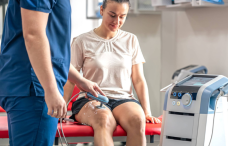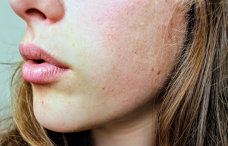Hydroxychloroquine is a drug that reduces the pain and swelling of arthritis. It prevents joint damage and reduces the risk of long-term disability. It was first used to treat and prevent malaria but now it is used to treat arthritis. It can reduce skin problems in lupus and prevent swelling or pain arthritis.
How is Hydroxychloroquine taken?
It is usually taken with food or milk to prevent stomach upset. The dosage of hydroxychloroquine depends on the medical condition for which it is prescribed and the response to therapy. For children, it is based on weight. To prevent malaria, this medicine is taken by mouth once a week on the same day as prescribed by the doctor. For lupus or arthritis, this medicine is taken by mouth usually once or twice daily or as directed by the doctor. The doctor may gradually increase the dose.
Once the condition improves the doctor will reduce the dose. Taking hydroxychloroquine may require dosing around other medications in order to avoid adverse reactions. It is important to consult the doctor before taking the medicine. The dose and timing must be decided by the doctor and depends on the condition of the patient. Stopping treatment may lead to complications and adverse effects and should not occur without consultation with the doctor.
While traveling in area at risk for malaria, one should wear protective clothing, insect repellent, bed nets. It is advised to as much indoors as possible. If hydroxychloroquine is taken for malaria, it should be used for malaria itself and not for any other purpose. It should not be consumed to prevent or treat another infection or condition without consulting a doctor first.
Side effects of hydroxychloroquine
Hydroxychloroquine often causes nausea, stomach cramps, loss of appetite, diarrhea, dizziness, and headache. There can also be other symptoms like back pain, slow heartbeat, hair loss, abdominal pain, hearing loss, skin conditions like psoriasis and fever.
Ways to prevent Hydroxychloroquine overdose
Before taking Hydroxychloroquine, the doctor should know if the patient is allergic to anything or have some allergies. The doctor should know the proper medical history, problems like blood disorder, diabetes, kidney disease, liver disease, certain skin problems, genetic problems, eye problems, and others. Hydroxychloroquine overdose may affect the heart rhythm which may become too fast or irregular. Severe dizziness or fainting requires immediate medical attention.
Hydroxychloroquine will increase sensitivity to sunlight so you should limit time in the sun. Sunscreens and sunglasses should be used. Children are more sensitive to the effects of the medication and it should be used more carefully with them. Hydroxychloroquine is not recommended for long term use for children. It is necessary to keep it out of reach of children to prevent hydroxychloroquine overdose.
How to store medicine?
It should be stored at room temperature away from moisture and light. It should always be kept away from children and pets. It should be kept away from sunlight and moisture and stored at room temperature.
The symptoms of Plaquenil overdose
The symptoms of Plaquenil overdose may include fainting, irregular heartbeat, shallow breathing, and loss of consciousness. One should not double dose if a dose is missed without first consulting their doctor. If someone has overdosed or has serious symptoms such as passing out or trouble breathing, one needs to call for immediate medical help.
If used for a prolonged period of time, medical tests like liver function tests, eye exams and complete blood count need to be done to check the condition or progress of health. Thus Plaquenil overdose needs to be avoided by having enormous respect for this medication and staying aware of the potential adverse effects.




